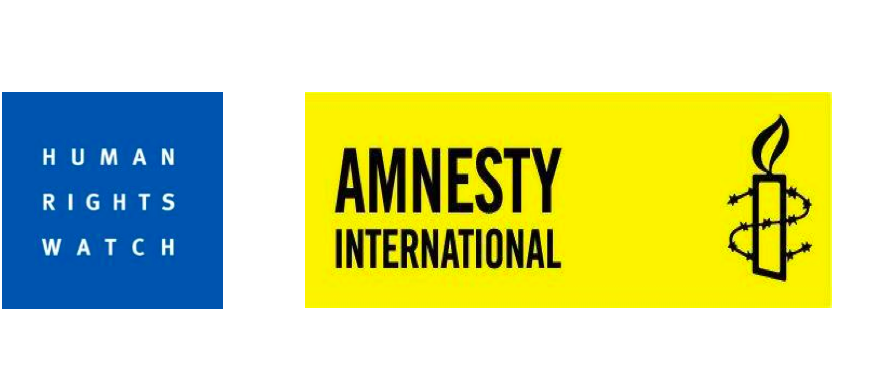Rights groups slam ‘abuses’ against media by South Sudan's National Security Service

Two leading international human rights groups today released a report detailing abuses against the media by the South Sudanese government and calling for the National Security Service (NSS) to “stop seizing and shutting down newspapers as well as harassing, intimidating, and unlawfully detaining journalists.”
The 15-page joint report by Human Rights Watch and Amnesty International documents unlawful restrictions on the media in South Sudan since December 2013. In a press release, the rights groups explain, “The NSS has harassed and detained journalists, summoned them for questioning, and told some to leave the country.”
Human Rights Watch and Amnesty International are calling for a “formal and public apology” from the Minister of National Security, a “formal retraction” of verbal censorship orders made by the Minister of Information and an inquiry into the National Security Service by the National Legislative Assembly.
The two rights groups say, “The National Security Service should immediately cease activities restricting freedom of expression including threats, summoning journalists to the NSS headquarters and issuing oral orders regarding publications and the seizure of newspapers.”
Amnesty International and Human Rights Watch argue that the government clampdown on the press has helped prevent national discussions about lasting solutions to the political crisis and internal armed conflict.
‘Cover-up’ of killings
The clampdown is also related to a ‘cover-up’ of crimes committed since December 2013 including extrajudicial executions of civilians, according to the report.
For example, the NSS detained two international journalists on 16 December for three days, during a period of mass violence in Juba.
In the following month, “armed NSS personnel visited a media house, threatened to arrest one of the editors, demanded that he report to the NSS headquarters the next day and questioned him about why he had visited the Mangaten neighborhood in Juba.”
The report explains that Mangaten is “one of the areas where Nuer civilians were targeted and killed by government forces during the mid-December 2013 violence.”
“The same evening and in the days following, several reporters of the same media house received phone calls threatening them to, for example, ‘stop reporting nonsense’,” the report reads.
“On 21 January 2014, an American journalist was summoned to the NSS headquarters where he was accused of fabricating information and slandering the NSS. He was shown a dossier of articles by his media outlet that covered targeted killings and other human rights violations.”
The journalist was expelled from the country the next day. Madut Wol, Director of Information at the Ministry of National Security, later explained to Amnesty International that the journalist had “written articles inciting the public against the government.”
In March 2014, a Voice of America reporter and a radio station manager were detained for approximately eight hours at the NSS headquarters because the radio station had broadcast a caller who advocated for South Sudan’s president to be held accountable for human rights violations in the country.
In terms of print media, over the past seven months, the government has held issues of Juba Monitor newspaper eight times, and in June, an entire run of the Citizen was seized. The Almajhar Alsayasy newspaper was given explicit instructions to cease publication.
‘Inquiry into the actions of the National Security Service’
Amnesty International and Human Rights Watch recommend, “the National Legislative Assembly should establish an inquiry into the actions of NSS to guarantee it has an understanding of NSS activities, increase oversight of the NSS and allow for informed analysis of the NSS bill.”
The report also recommends that the South Sudan Human Rights Commission should monitor illegal restrictions on freedom of expression, and should report on the issue regularly and publically.
According to the rights groups, the National Security Service “bears the greatest responsibility for unlawful interference” in the media. They stress that NSS officers “overstepped their mandate” and “acted outside the law.”
“The right to freedom of expression is protected under South Sudan’s 2011 transitional Constitution,” the human rights groups say.